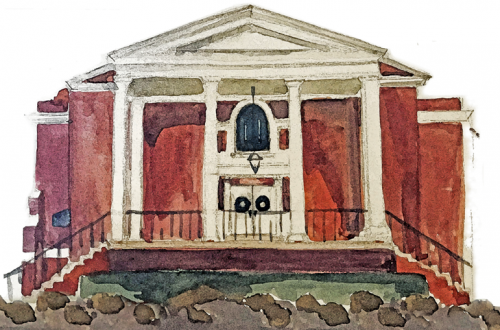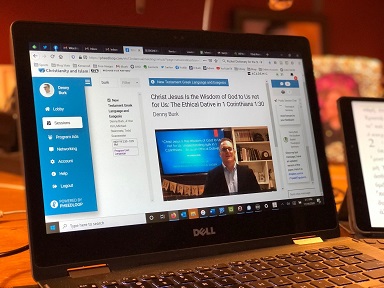 Kent Greenfield is a law professor at Boston College and a supporter of legal gay marriage. He has also written a compelling article admitting that the arguments in favor of legal gay marriage must also allow for incestuous and polygamous marriages as well. He writes,
Kent Greenfield is a law professor at Boston College and a supporter of legal gay marriage. He has also written a compelling article admitting that the arguments in favor of legal gay marriage must also allow for incestuous and polygamous marriages as well. He writes,
You know those opponents of marriage equality who said government approval of same-sex marriage might erode bans on polygamous and incestuous marriages? They’re right. As a matter of constitutional rationale, there is indeed a slippery slope between recognizing same-sex marriages and allowing marriages among more than two people and between consenting adults who are related. If we don’t want to go there, we need to come up with distinctions that we have not yet articulated well…
The arguments supporters of same-sex marriage have made in court do not sufficiently distinguish marriage for lesbians and gay men from other possible claimants to the marriage right. If marriage is about the ability to define one’s own family, what’s the argument against allowing brothers and sisters (or first cousins) to wed? If liberty protects, as Kennedy wrote ten years ago in Lawrence v. Texas, the case striking down Texas’s anti-sodomy law, the “right to define one’s own concept of existence, of meaning, of the universe, and of the mystery of human life,” why can’t people in polyamorous relationships claim that right as well? If it’s wrong to exclude groups because of prejudice, are we sure the uneasiness most of us feel about those who love more than one, or love one of their own, shouldn’t count as prejudice?
In private conversations with leaders in the marriage movement, I often hear two responses. The first is that there is no political energy behind a fight for incestuous or polygamous marriages. The second is that they would be fine if those restrictions fell as well but, in effect, “don’t quote me on that.” The first of these responses, of course, is a political response but not a legal one. The second is to concede the point, with hopes that they won’t have to come out of the closet on the concession until more same-sex victories are won in political and legal arenas.
Can we do better? What are the possible distinctions?
Greenfield goes through all the ways that liberals try to distinguish gay marriage rights from incestuous and polygamous marriage rights, and he shows that there is no significant distinction. Gay marriage supporters have already provided the legal rationale for those who might press for legal incestuous and polygamous marriage. The equality genie is out of the bottle, and there will be no getting him back in.
Greenfield has in fact conceded the point made by Anderson, Girgis, and George in their watershed book What Is Marriage? They argue that once marriage is redefined, it becomes infinitely elastic. If the marriage right cannot exclude people simply because they love another person of the same sex, then why should it exclude those who love their own family members or those who love more than one person of the opposite sex?
This slippery slope really is slick, and we are already half-way down.
(HT: Jim Smith)




13 Comments
Pingback:
Suzanne McCarthy
Here in Vancouver, we accept same sex marriage and have rejected appeals for polygamy. The test is harm, and the suffering of those under hierarchy. Any marriage contract which commits a subordinate to the power of a superordinate, any marriage or even sexual arrangement which involves polygamy, hierarchy, incest, and minor/ adult relations, should be outlawed. May we as humans be released from the coupling of subordination and sexual relations.
Daniel Bartholomew
Suzanne, I see nothing inherent “subordinating” in polygamy, polyandry, group marriage or incest, when all such relationships involve consenting, competent adults. Any one arguing that says such an arrangement inherently causes harm to those consenting needs to prove his or her case. If you have information or a link that would provide such inherent “subordinization”, I would be interested to read it.
Andrew Orlovsky
By that logic, it seems like we can justify sodomy bans as well. I would consider that harmful and involving a superordinate and subordinate. On what moral basis do you base what is considered subordination and what is not? It seems “anything is OK among consenting adults” has become almost a religious statement in American society, but as Daniel said polygamy, polyandry, group marriage and incest fall inside that bubble as well as homosexual activity.
Alonzo "Zo" Thomas
Actually, British Columbia is home to a polygamist sect –
Bountiful is a settlement located in the Creston Valley of southeastern British Columbia, Canada, near Cranbrook and Creston. The closest community is Lister, British Columbia.
Bountiful’s community is made up of members of a polygamist Mormon fundamentalist group. The polygamists live in a commune-style compound outside of Lister. The settlement is named after Bountiful in the Book of Mormon.
Andrew Orlovsky
That seems to be the dividing line for liberals on determining whatever a certain activity should be legal. Acts between consenting adults that involve progressive freethinkers are ok. Acts between consenting adults that involve cult leaders or Muslim or Mormon extremists are not ok. (I refuse to call them fundamentalists, they have nothing do with the writings of BB Warfield and Charles Hodge). Though I’m sure the line can get blurred between cult leader and progressive freethinker.
Suzanne McCarthy
The legal ruling went against polygamy.
Suzanne McCarthy
Just commenting that in reality and in fact, jurisdictions that legalize gay marriage come down against polygamy. The age of consent rose in the last century from age 12 to 16 to protect minors. The general movement in secular society is to protect the young and those under authority, students, patients, etc. from sexual relations with those in authority. The trend is explicitly in the direction of equal and reciprocal relations, excluding polygamy. I wish Christians could grasp the harm of coupling sex and submission in the marriage vows.
Suzanne McCarthy
Vowing to enter a sexual relationship as a life long submissive is not okay.
Brett Cody
Even if the person is “oriented” toward that submissiveness and consents to it?
Suzanne McCarthy
Sort of like cutting. We try to prevent self harm.
Brett Cody
Then tell me, what is the mortality rate among practicing homosexuals? Is it lower than that of practicing heterosexuals? By your logic we should prevent homosexuals from harming themselves. Or is it okay to let them practice homosexuality?
Suzanne McCarthy
The same sex couples I know now are not marginalized by society. They live middle class lives, care for aging parents, socialize with their siblings, are faithful in their marriage, and moderate in their lifestyle. That’s the new reality. Some are married to their first date, no promiscuity. Some are dedicated to rescuing girls caught in sex slavery.
But a few years ago, as a high school teacher, I knew how close the temptation was for suicide and despair. I saw that too, and self-destruction.
I just can’t read these articles about how gay marriage leads to acceptance of polygamy without asking people to reference reality. That is not what happened here.
I started out myself with all the views and opinions expressed on this blog, but reality has demonstrated that this is not the truth. When same sex couples are allowed to live a normal life that is what they do. And women caught in hierarchical marriages continue to suffer, as a silent group in the churches. This is a hell I wish on no one, a silent hell.